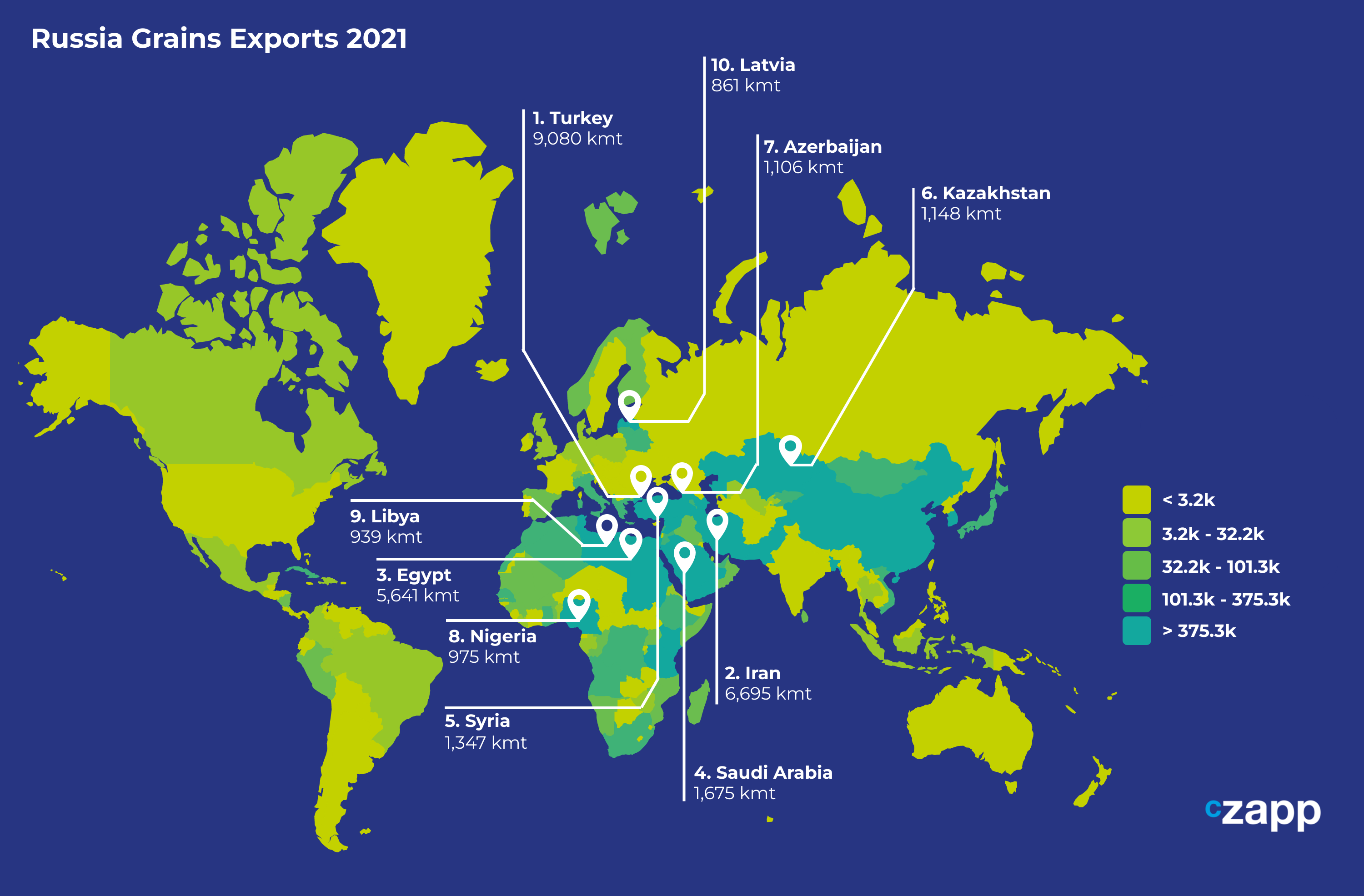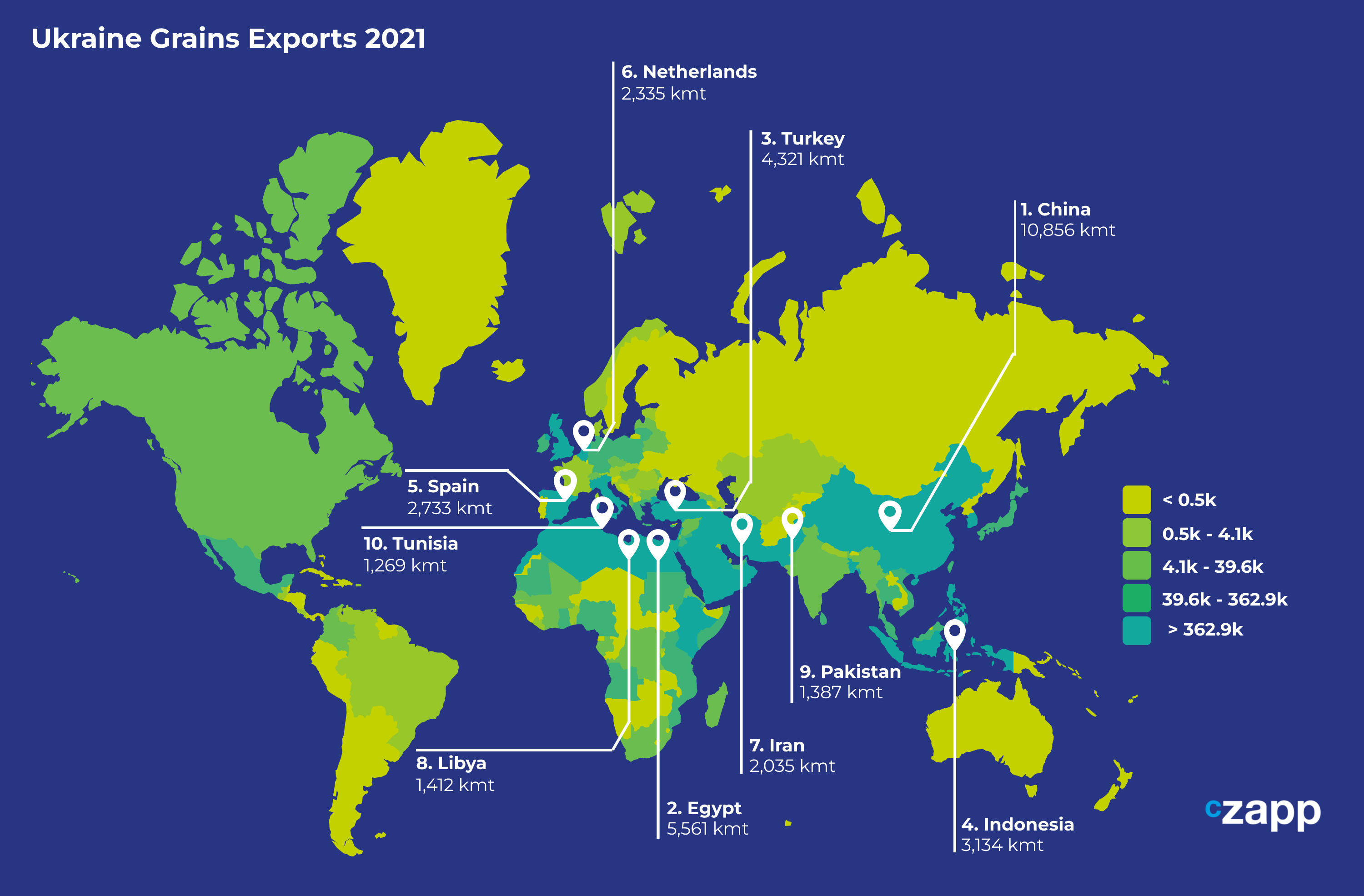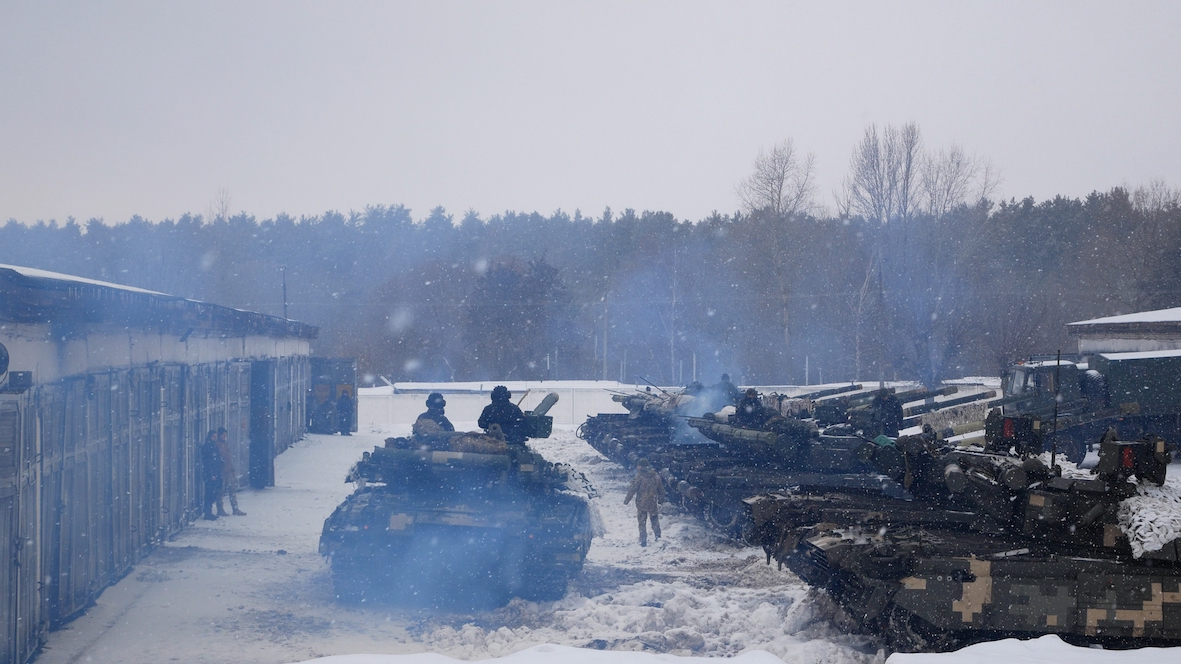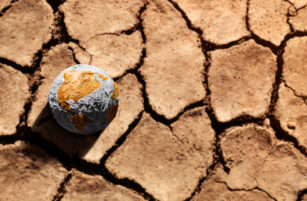- Russia’s invasion of Ukraine has sent shockwaves along the grains supply chain.
- The two countries have historically provided over a quarter of the world’s grains.
- With exports disrupted, we look at who is most at risk of supply shortages.
Russia’s invasion of Ukraine has rocked the entire grains supply chain. Russia and Ukraine are the first and fifth largest grains exporters globally, so there are real concerns over the war’s impact on supply. Here, we look at the top buyers of Russian and Ukrainian grains and consider who is most at risk of shortages.
Russia’s Grains Exports are Highly Concentrated
- Russia’s grains exports are concentrated across a handful of countries, with almost 70% going to the top 10 destinations.
- Supply to Middle East, North Africa could be hit by the war with insurance costs preventing access to Black Sea ports.
- Supply to neighbouring countries, Kazakhstan and Azerbaijan, should be undisrupted, though, as Russia can export there without having to go through Turkey.

Ukraine Disruption Exposes MENA
- Although China is the largest buyer of Ukrainian grains, its import volume is small compared to China’s annual consumption of around 450m tonnes.
- Egypt is much more vulnerable as Ukrainian grains satisfy almost 30% of its annual consumption (around 19m tonnes).
- As well as MENA, several European countries are exposed to grains shortages if Ukrainian supply remains disrupted.

Other Insights That May Be of Interest…
Market View: What the Ukraine Crisis Means for Sugar
Russian Invasion Sends Wheat Prices into Overdrive
Explainers That May Be of Interest…




